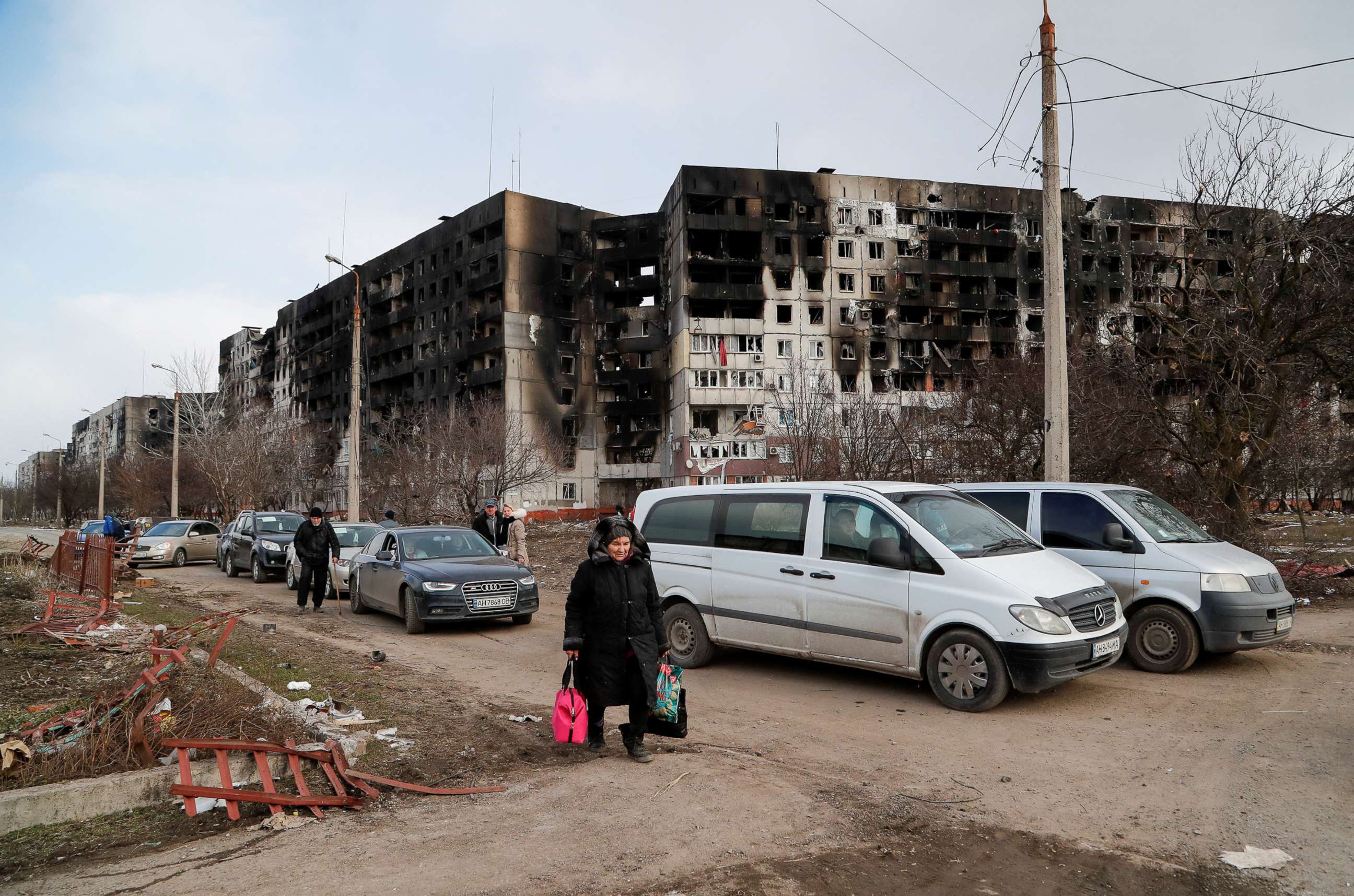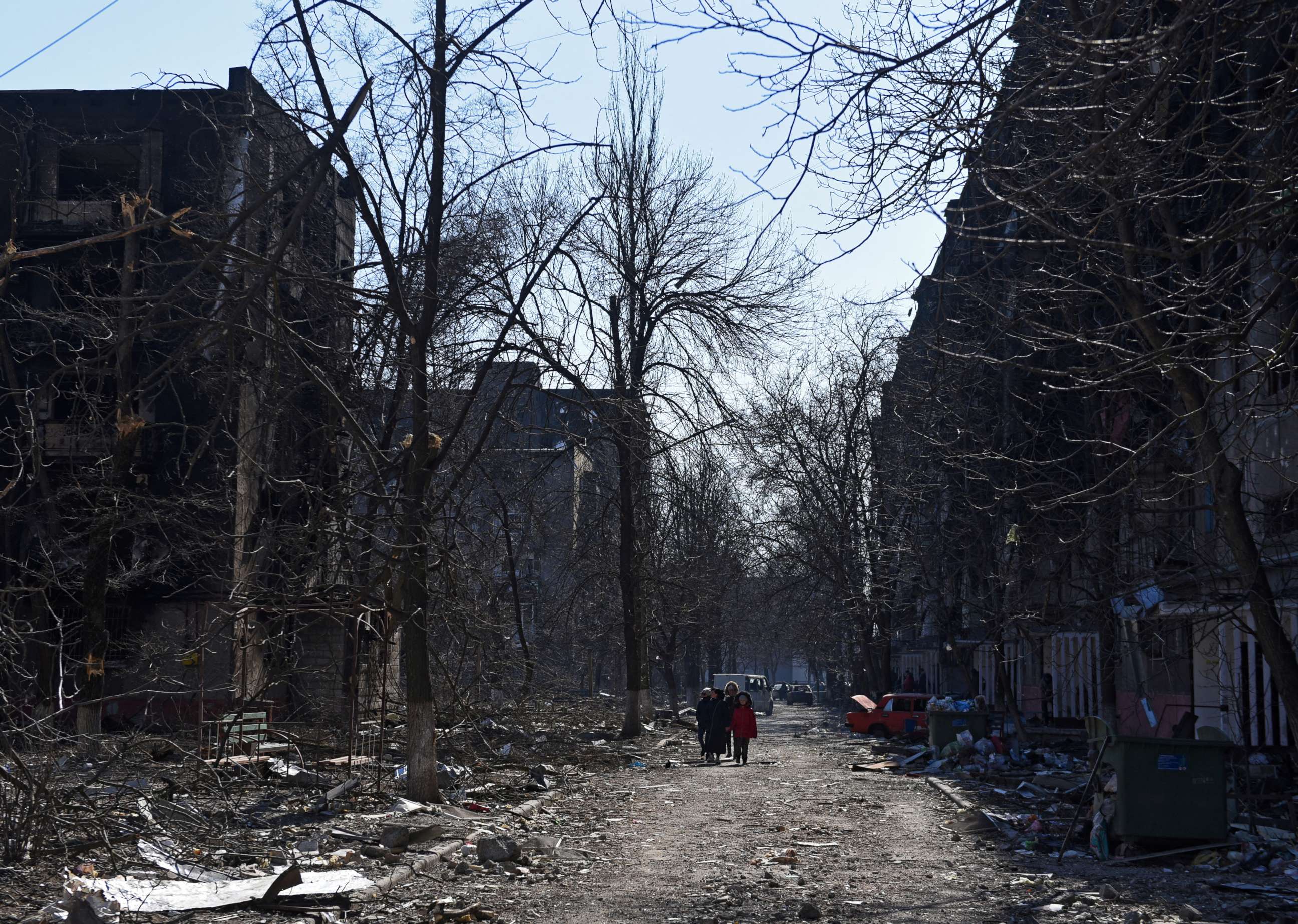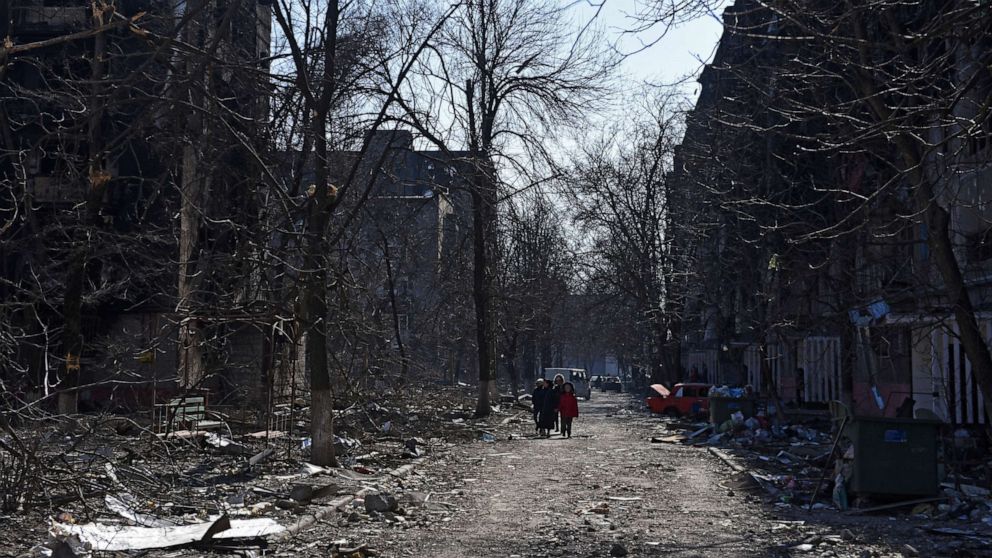Reporter's notebook: Escape from Mariupol

Natalia's escape from Mariupol, Ukraine, as Russian President Vladimir Putin continues his attack on the country, meant taking her family's life in her hands. After more than two weeks of waiting, she said she and her neighbor decided they'd make a run to escape the besieged city.
She said she crammed her elderly parents and four cats into a small car, and they drove out of Mariupol -- fast.
She described to ABC News looks from people on the road as they sped past them on the outskirts of town.

"People looked at us like we had risen from the dead. They thought those inside had all been sentenced to death," she recalled.
We talked in the small apartment she's been offered by a friend in Lviv. She's about 5'5, with silver hair, plaited down each side of her face. There is an aura of steely determination about her. She's furious.
One of her cats -- Mica -- sits curled up in the afternoon sun on a makeshift mattress in the kitchen. That's where Natalia sleeps. Her parents, both in their 80s, have taken the bed next door.
She told us about the dead bodies she saw lying by the side of the road. Residents had no choice but to leave the corpses there in the street among the shelling and attacks. She told us about her trips to find food and other supplies. With no electricity or heat, she'd have to brave the elements and Russian bombardment to cook outside. Her parents were too old to keep going to shelters, so they waited in their apartment with the bombs getting closer.

Hers is a story about regular people banding together. Neighbors whispering rumors they'd heard about what was going on. Sharing food and information in a collective bid to survive.
"I felt helpless. And then I understood that I had to help myself," she said.
Natalia said she would go out regularly to find service on her phone, desperate to know if anyone was coming. "We were totally alone. We had no information."
As we speak, an air raid siren goes off. She shrugs. "We didn't get alerts in Mariupol. They just bombed us," she said.
I asked her if it worried her parents when they heard it.
"They're used to it now," she replied.
I can see the relief on her face that her parents can finally rest. For now.
Natalia embodies her country's story, the one we've all seen play out these last weeks: the determination to survive and to resist. And she survived the very worst of what this war is doing. But thousands more like her, are still trapped in Mariupol.




